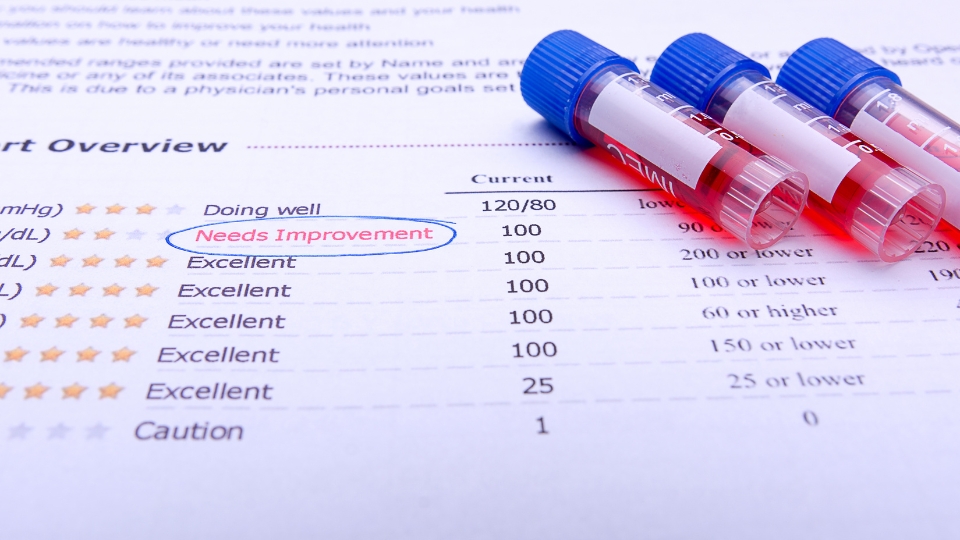What Is Applied Kinesiology (Muscle Testing) + How Can It Improve Your Health?
What Is Applied Kinesiology AKA Muscle Testing?
Applied kinesiology (AK) is a tool in the tool box used in alternative and functional medicine spaces. Also known as manual muscle testing, AK uses muscle strength to assess several aspects of health.
Applied kinesiology views health as a triad – with structural, chemical, and emotional aspects. Each factor represents one side of an equilateral triangle in your “triad of health.”
These factors, or “sides,” all influence one another. When one side becomes imbalanced, the others will react and try to compensate. This can lead to further imbalances, steering you farther away from health – and closer to disease.

Is Applied Kinesiology the Same as Kinesiology?
No, although aspects of kinesiology are woven into AK. Kinesiology is the study of human movement. Applied kinesiology is a tool used by health professionals to assess health and customize treatment.
What is Applied Kinesiology?
Applied kinesiology (AK) was developed in 1964, by Dr. George Goodheart, a Michigan chiropractor and pioneer in his field. Dr. Goodheart discovered that each muscle group in the body is related to a specific organ system. This led him to explore the link between muscle function and health and well-being. He found that muscle weakness or strength could reveal specific imbalances in the body. By making that muscle strong again, it may improve the function of the related organ system as well. Drawing inspiration from traditional Chinese medicine, he later integrated the concept of energy meridians into his work.
How Does Muscle Testing Work?
The core principle behind muscle testing is that your body talks. Your body wants to be well and is constantly communicating with you, trying to bring you back into balance.
Unfortunately, we don’t always understand our body’s language. That’s where applied kinesiology comes in. Muscle testing allows you to tap into your body’s wisdom. It’s a noninvasive way to quickly and accurately assess your health needs, instead of guessing based on symptoms.
That said, it isn’t meant to be a standalone assessment tool. It’s meant to be used in conjunction with other diagnostic data, such as physical exams, health histories, and lab testing.
What sets applied kinesiology apart from other diagnostic tools is that it often finds imbalances before full-blown disease sets in. This can help you address concerns in earlier stages to prevent bigger problems down the road.
During my training, my partner, who knew nothing about my issues, found all of my issues with muscle testing that I already had confirmatory lab work to support.

How is Muscle Testing Used?
Applied kinesiology practitioners exert gentle pressure on specific muscles, one at a time. Patients are asked to hold or resist pressure in a specific direction. Muscles are evaluated for "locked" or "unlocked" against pressure.
That said, muscle testing is not meant to assess muscle strength. It’s meant to assess the nervous system’s control over that muscle.
Muscle testing offers clues about how various systems in your body are working, including:
- Glands
- Organs
- Lymphatic system
- Nervous system
- Circulation
- Muscle and bone strength
If a muscle tests locks, it suggests that the related organ is functioning optimally. Any muscles that test unlocked may indicate a problem in that related organ or gland.
Muscle testing can also help practitioners identify what’s needed to feel better and come back into balance.
Benefits of Applied Kinesiology

Here are a few ways applied kinesiology can help assess and improve your health.
Identify Irritants
Muscle testing can help identify any irritants that may be harming the body. This includes bacteria, viruses, parasites, yeast, and heavy metals. Lab testing clearly does this too. But muscle testing is less invasive and expensive – and can be done quickly.
Choose Supplements
Muscle testing can even be used to find the perfect dosage for you. While the standard dosage might work for some, it won’t for everyone. For example, say you’re treating a parasitic infection with an herbal formula, but have poor liver function. The standard dosage may be too much for your body and overload your eliminatory organs. Muscle testing can prevent this, assuring you get the right dose for you.
Identify Nutritional Deficiencies
Muscle testing can also be used to uncover underlying nutritional deficiencies. If you test strongly for a specific nutrient, it may suggest you’re running low on that nutrient. This can help you correct deficiencies before they get out of hand.
Prioritize Treatment
When someone is having symptoms, often more than one imbalance is at play. And knowing which to address first can be tricky. Applied kinesiology taps into your body’s wisdom to find which imbalance is the top priority. That way, treatment can be as gentle, effective, and efficient as possible.
What Will Muscle Testing Show About Your Health?
Are you curious if muscle testing will help you on your health journey? Will it bring new things to light?
Schedule a complimentary discovery call here to discuss your health challenges with Dr. Deborah Bowers.
Related Posts
Realize that if your provider has told you your lab tests are normal, that does not mean that you are healthy and that they are optimal. This just means you are like 95% of the population in your area. Is 95% of the population in your area healthy? I would think if you evaluated it, most of the population is over weight, struggling with several issues, maybe on a few prescriptions and not living a vibrant, energy-filled life. Why would you want to be like that?
Fatigue is often described as a lack of energy or motivation - both physical and emotional. It isn't sleepiness or drowsiness. Some medical considerations for fatigue are...

Dr. Deborah Bowers
822 B E Liberty St
York, SC 29745
(803)628-7934
© 2025 Dr. Deborah Bowers. All Rights Reserved.
Site Conceived By HealthProWebsite.com


